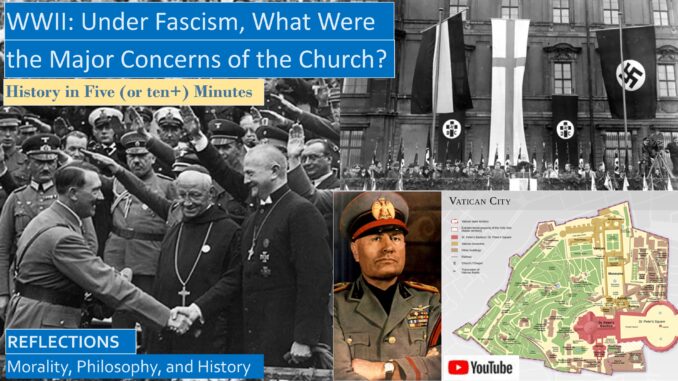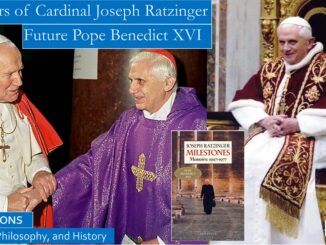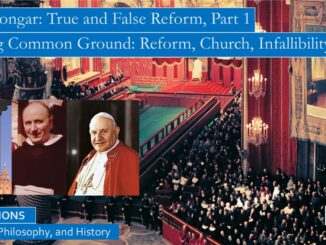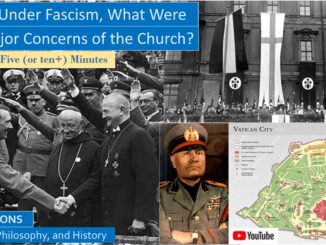
Hitler’s Nazi regime in Germany was an incredibly brutal regime. We must ask, Were Brave Protests Ever Successful in Nazi Germany?
The answer is a surprising YES, sometimes brave protests against one of the most evil regime in modern times were successful and did cause the Nazi state to retreat from its brutal policies.
This YouTube video: https://youtu.be/QZgIv9rNP_8
Much of this discussion is excerpted from our videos on how Christians kept the faith in Nazi Germany.
LESSON: BRAVE PROTESTS CAN SOMETIMES MAKE A DIFFERENCE
Hitler was always probing, always trying to see what more he could get away with. But even as dictator Hitler was not totally immune to political pressure, Hitler sought the willing support of his base, his enthusiastic followers.
Hitler would retreat from policies that proved unpopular. Hitler encountered stiff resistance from both Catholics and Protestants against their euthanasia initiatives. In September 1939 Hitler issued an order to euthanize the disabled and retarded and patients with incurable diseases to eliminate “useless eaters.” At first the victims were shot, but as the program expanded the Nazis experimented with gassing patients in rooms disguised as showers. Those who lived near these institutions noticed buses arriving with patients and always leaving empty and chimneys constantly belching smoke.
The euthanasia program soon became an open secret, too many were involved in its administration. Many of these institutions were run by the churches. Many administrators refused to answer questionnaires inquiring about the status of their institutionalized patients. Sometimes the government had to send in their own doctors to fill out the forms to expedite the killings. Doctors argued to get people off the lists, sometimes sending the patients back home to avoid execution. In addition, doctors and midwives were likewise requested to fill out questionnaires on infants born with birth defects.
In 1940, after the war started, a Protestant minister spoke out publicly to his congregation, telling them how “we received the urns from the murder institutions with the letter of lies, ‘So and so dies of this or that illness, and the body was cremated immediately due to danger of an epidemic.’ We could not stand at the grave and say, ‘After it has pleased Almighty God to call our sister from this life,’ when we knew that she had been murdered! We have to stand in front of our patients as say publicly, as the church: ‘This is murder. This goes against God’s commandment and God’s will.’”
We can lobby the government quietly for more humane policies for only so long. “But there is a limit, when silence has to have an end, when we can no longer remain silent about dreadful crimes, because otherwise we make ourselves guilty of these crimes.”
Sometime after the practice had been revealed to the public, Bishop von Galen bravely condemned the practice from his pulpit: “Do you or I have the right to live only as long as we are productive? Then someone has only to order a secret decree that the measures tried out on the mentally ill be extended to other ‘nonproductive’ people, like those who are incurably ill with lung disease, those disabled on the job, those severely wounded soldiers. Then not a one of us is sure anymore of the sanctity of his own life.”
“Woe to humanity, woe to our German people, when the sacred commandment, ‘Thou shalt not kill,’ is not only violated, but when this violation is tolerated and carried out without punishment!” And he could have added, without permission.
Many were horrified by these killings. Sometimes pastors and bishops publicly criticized the killings, more often they appealed directly to high Nazi officials. For once the Nazis backed down, less than a month later Hitler signed an order ending the euthanasia program that had killed over 70,000 patients. But the euthanasia program did not finally end until the war ended, it was simply carried out on a quieter and smaller scale.
Another example is when the hundreds of brave Christian wives publicly protested for many weeks when their Jewish husbands were sent to concentration camps. These protests were very public, many protests were staged in the streets of Berlin, the Nazis could not ignore the embarrassing public demonstrations, so Hitler ordered the release of these Jewish husbands to calm public opinion.
PAPAL ENCYCLICAL OPPOSING NAZISM
The most notable protest to the racial policies of Hitler and the Nazis came from the pope. Pope Pius XI was aging with ill health; Pope Pius XI was worried about his eternal salvation. He knew that if he spoke out forcefully that the persecution of the church would increase. But enough was enough, 300,000 copies of the papal encyclical “Mit Brennender Sorge”, translated in English “With Burning Concern”, were successfully secretly smuggled into Germany and read from every Catholic pulpit on Palm Sunday in 1937. Hitler was not named but rather referred to as the mad prophet oppressing the Church and breaking the terms of the Concordat.
The encyclical proclaimed the true belief in God could not be reconciled with the idolatrous deification of a race, people or state, that the God of Christianity could not be imprisoned in a single race. The Nazi principle that “right is what is advantageous to the people,” what is morally illicit can never be truly advantageous, and Christians have no obligation to obey laws contrary to natural moral laws. The faithful were bound to believe in Christ, divine revelation, and the primacy of the Bishop of Rome, challenging the totalitarian claims of the Nazi regime. The encyclical proclaimed that “humility in the spirit of the Gospel and prayer for the assistance of grace are perfectly compatible with self-confidence and heroism,” and that “the priest’s first loving gift to his neighbors is to serve truth and refute error in any of its forms,” both of these proclamations are anathema to Nazi sensibilities of superiority.
The encyclical proclaimed the true belief in God could not be reconciled with the idolatrous deification of a race, people or state, that the God of Christianity could not be imprisoned in a single race. The Nazi principle that “right is what is advantageous to the people,” what is morally illicit can never be truly advantageous, and Christians have no obligation to obey laws contrary to natural moral laws. The faithful were bound to believe in Christ, divine revelation, and the primacy of the Bishop of Rome, challenging the totalitarian claims of the Nazi regime. The encyclical proclaimed that “humility in the spirit of the Gospel and prayer for the assistance of grace are perfectly compatible with self-confidence and heroism,” and that “the priest’s first loving gift to his neighbors is to serve truth and refute error in any of its forms.” Both of these proclamations are anathema to Nazi sensibilities of superiority.
Hitler was furious. The Gestapo seized many of the copies of the encyclical, a dozen print shops were seized, and hundreds of Catholics were thrown in prison and in concentration camps. The Nazis trumped up immorality trials against priests, monks, and nuns and confiscated church assets. But the encyclical did not totally condemn totalitarianism. Succumbing to the relentless anti-Catholic Nazi propaganda, many Catholics left the church. But Hitler did not want to overreact, he wanted the allegiance of Catholics. Hitler planned further retributions against Catholics and the Pope and all Christians after the war.
Many in the Vatican opposed releasing this encyclical, including the Secretary of State who would become Pope Pius XII in less than a year. There were many who did not want to take the risk of antagonizing Hitler and increasing the persecution of Christians, there were some who were sympathetic to the Nazi cause.
Was the quixotic issuance of this brave encyclical opposing Nazism successful? In immediate early terms, it was not successful, its main effect was to increase the Nazi persecution of the church. But it was successful in that it showed Hitler that he could not count on the church always acting like a church-mouse to his persecutions, perhaps his enhanced respect for the courage of this brave pope was a factor in the Germans not molesting the inhabitants of Vatican City during the Nazi occupation of Rome near the end of the war. When Pope Pius XI passed away, on his desk was a similarly harsh encyclical condemning Nazism. His successor, Pope Pius XII, was not on death’s door, so he suppressed the harsh encyclical for fear of certain further persecutions of Christians.
This encyclical was also successful in demonstrating the bravery of Pope Pius XI, so history can never accuse the Catholic Church of being totally subservient to the brutal Nazi Regime of Hitler.
(NOTE: See individual blogs for YouTube videos cited for footnote references.)




1 Trackback / Pingback